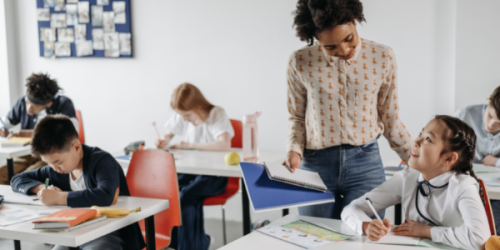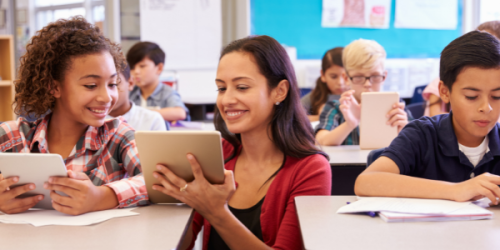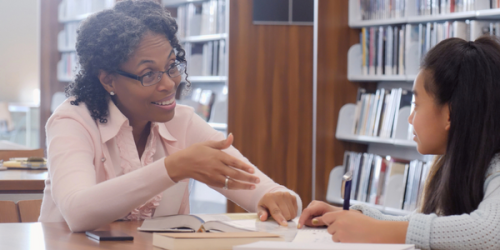When it comes to teacher quality, teaching skills and content knowledge are essential in helping ensure that an aspiring teacher is ready for the classroom. Additionally, there may be other factors that can positively influence student outcomes. A new working paper by the University of Stavanger-Norway’s Maximiliaan W.P. Thijssen, Mari Rege, and Oddny J. Solheim explores the dynamic between teacher relationship skills and elementary student learning in math and literacy.
The researchers collected data from 5,830 first grade students in randomly selected classes at 150 Norwegian primary schools. The children were assessed at the start and end of the school year on math, literacy, and “self-concept” in reading (which focused on students’ perceived competence and interest in reading). These questions varied at the start and end of the school year to account for child development.
At the end of the school year, the researchers also measured teachers’ relationship skills, asking students to respond to questions about how their teacher supported them emotionally and created a positive classroom climate. This included: “Do you feel as if the teacher is a good friend of yours?” and “Will the teacher help you when you have problems?”
Researchers then looked at whether teacher relationship skills—as measured by an index based on the children’s responses to these questions—were correlated with student learning in math and literacy, and with children’s “self-concept” in reading.
The study found positive and statistically significant relationships between teachers’ relationship skills and student learning in both mathematics and literacy, with a stronger correlation between teachers’ relationship skills and students’ growth in mathematics. The authors suggest that the larger boost in math scores associated with teacher relationships may be due to the fact that, “[m]any parents read with their children even before formal schooling, while most children learn math exclusively in school.”
The first graders whose teachers had greater relationship skills also had a notable, positive increase in “self-concept” in reading, including reading interest. These results held even after controlling for family background, initial skill level, classroom demographics, and other student, teacher, and classroom characteristics.
These findings are a reminder of the multiple aspects of a teacher’s effectiveness. As states and districts consider how best to evaluate teachers, this information further makes the case for incorporating several measures in their evaluation of effectiveness, including student feedback. Based on forthcoming data collected for the NCTQ State Teacher Policy Database, only six states—Alabama, Hawaii, Iowa, Massachusetts, New Mexico, and Utah—require student surveys to be included in the teacher evaluation process. Having such a measure in place could help offer insight into a teacher’s performance that supplements school administrators’ classroom observations.1
More like this

Reflections on the pandemic and the power of teachers

Hiring school guidance counselors can help teachers and students thrive

Coming home to teach: Do local grads make better teachers?

What teachers really want: It isn’t just higher salaries

Building a school climate that makes teachers want to stay
Endnotes
- Peterson, K. (2000). Student Surveys for School Teacher Evaluation. Journal of Personnel Evaluation in Education, 14(2): 135-153. Retreived from https://www.researchgate.net/publication/226256956_Student_Surveys_for_School_Teacher_Evaluation.

